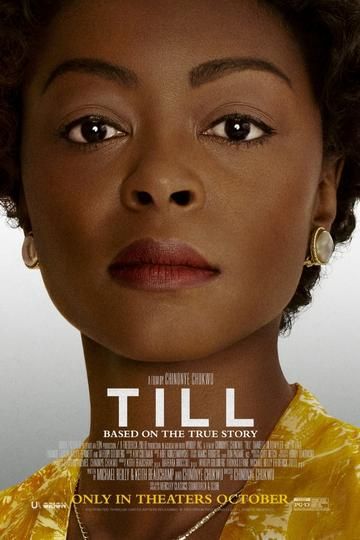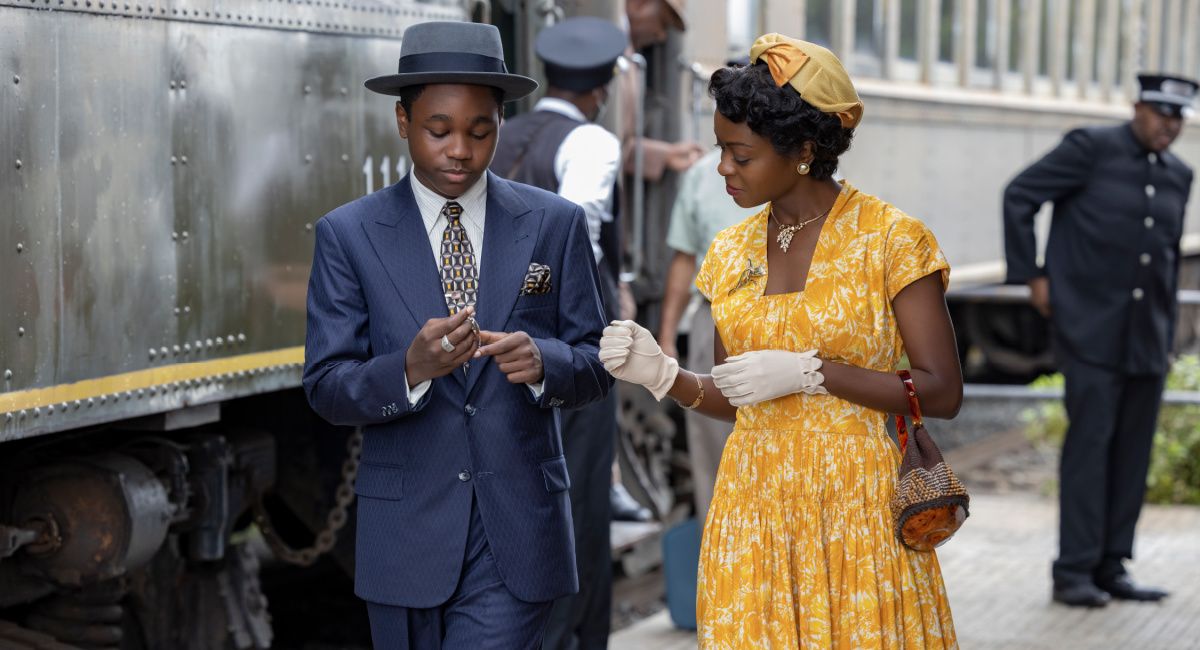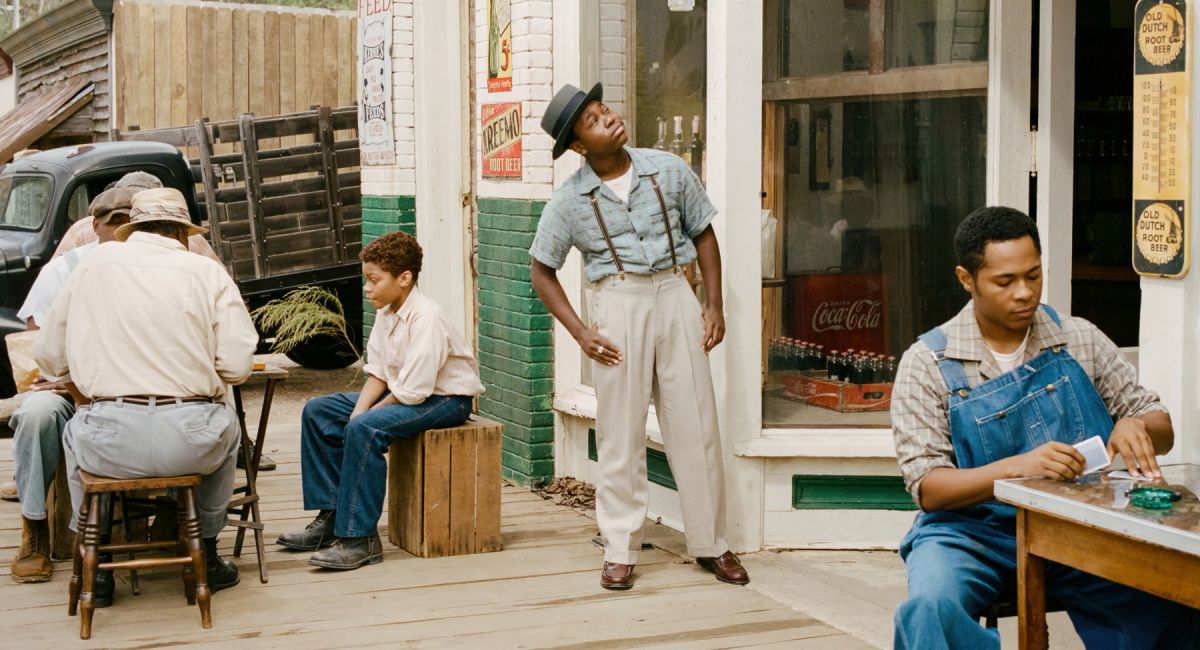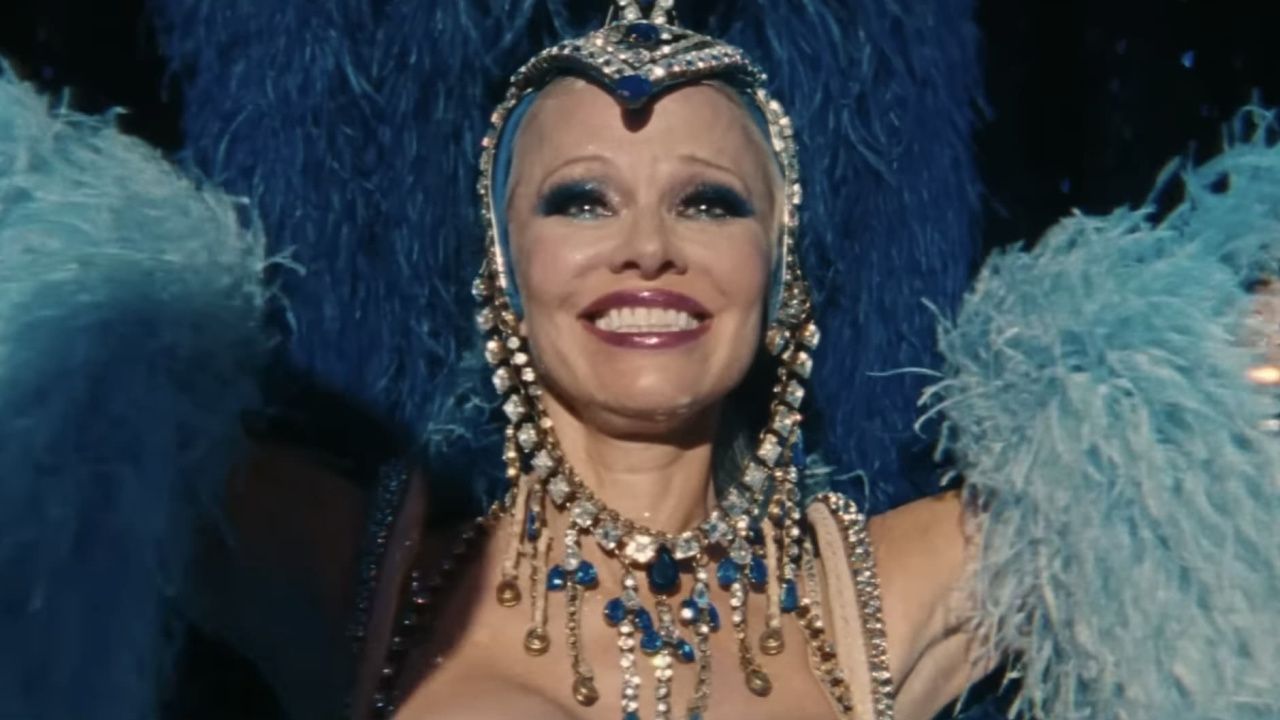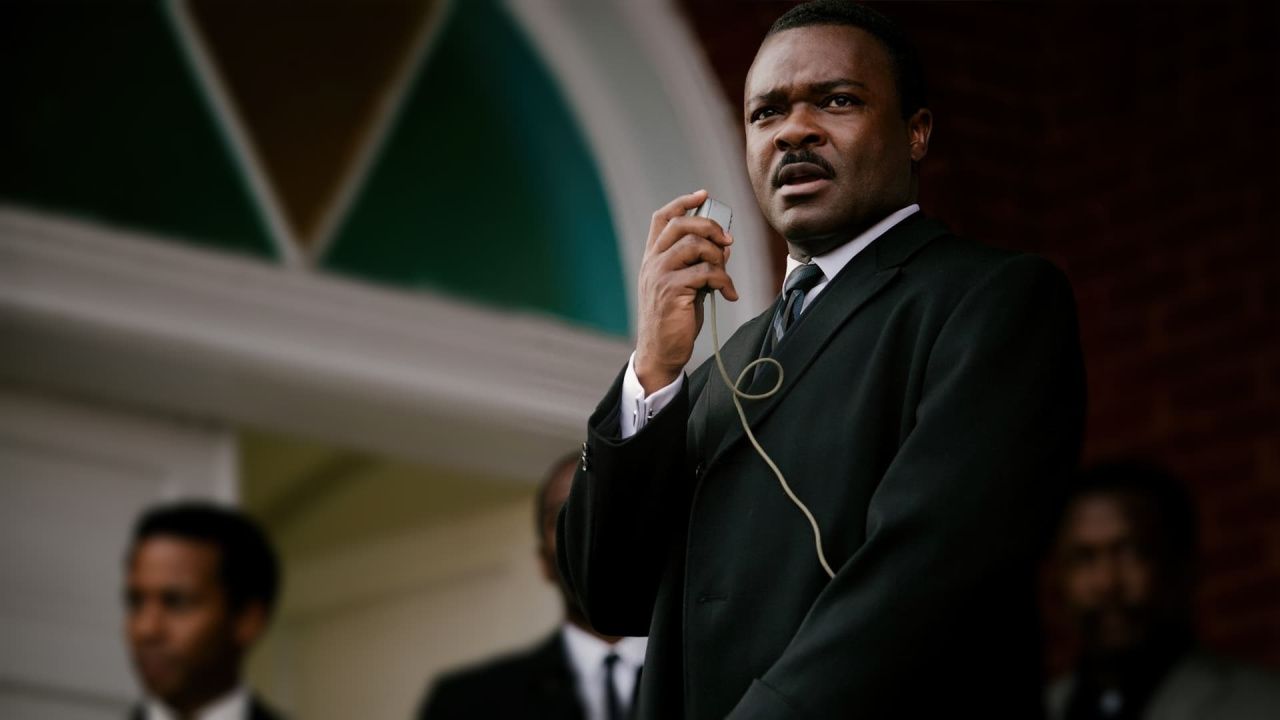‘Till’ Tells an Important Story With A Career-Making Lead But also Suffers From Trope Use
Danielle Deadwyler is astonishing as the mother of a murdered son in this powerful true-life tale that sometimes loses its own way.
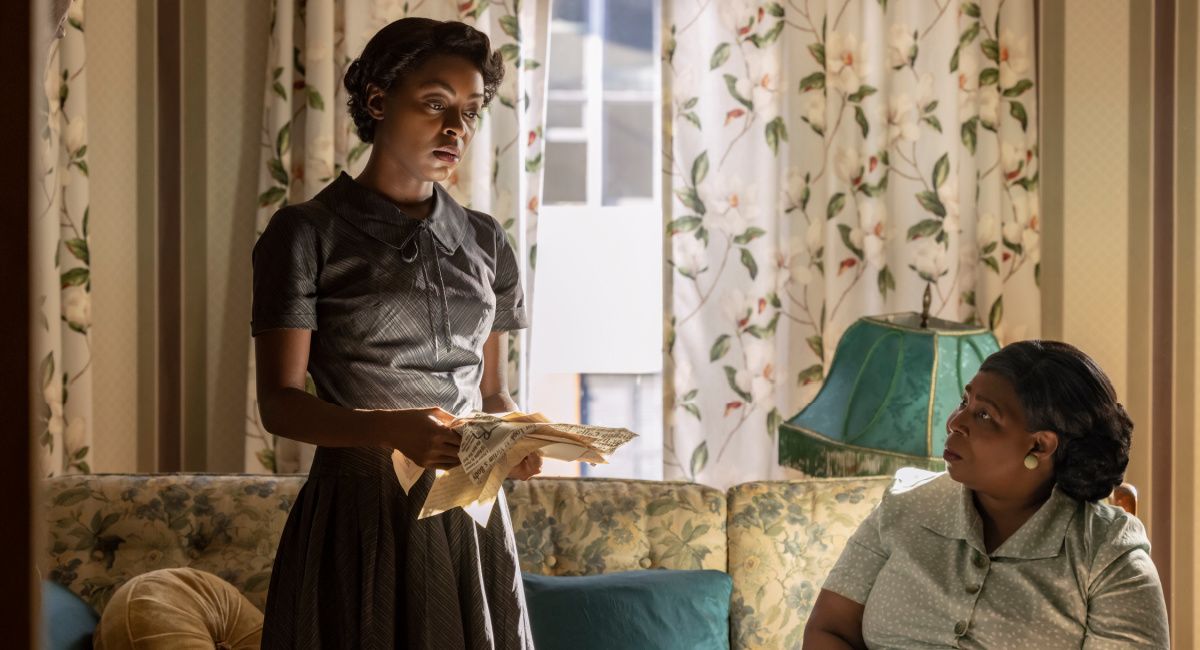
(L to R) Danielle Deadwyler as Mamie Till Bradley and Whoopi Goldberg as Alma Carthan in TILL, directed by Chinonye Chukwu, released by Orion Pictures. Credit: Lynsey Weatherspoon / Orion Pictures. © 2022 ORION PICTURES RELEASING LLC. All Rights Reserved.
Out now in theaters, ‘Till’ has a powerful, shocking and important story to tell, but the film delivering the message isn’t always quite up to the task and occasionally dips into such earnestness that it verges on parody.
The horrific lynching of Black teen Emmett Louis Till in Mississippi in 1955 remains both a terrible stain on human history and the spur for real, positive change in American race relations, mostly thanks to his crusading mother, Mamie Till-Mobley.
What really makes the movie work is a full-power lead performance from actress Danielle Deadwyler, who completely owns the role of Mamie and absolutely holds your attention in a vice grip whenever she is on screen.
The movie chronicles what happened when 14-year-old Emmett travelled from Chicago to Mississippi to visit his uncle and cousins. A worried Mamie – her anxiety at her son being away for an extended period of time understandably heightened by the seething racism pervading much of the South – packs him off on the train after numerous warnings about not attracting attention and being careful how he interacts with white people.
Emmett, though, a vivacious, bright and sweet lad (played well here by Jalyn Hall) is mostly excited to be taking the trip and to hang out with his cousins. Frustrated by spending long hours in the sun picking cotton, he’s happier making everyone laugh.
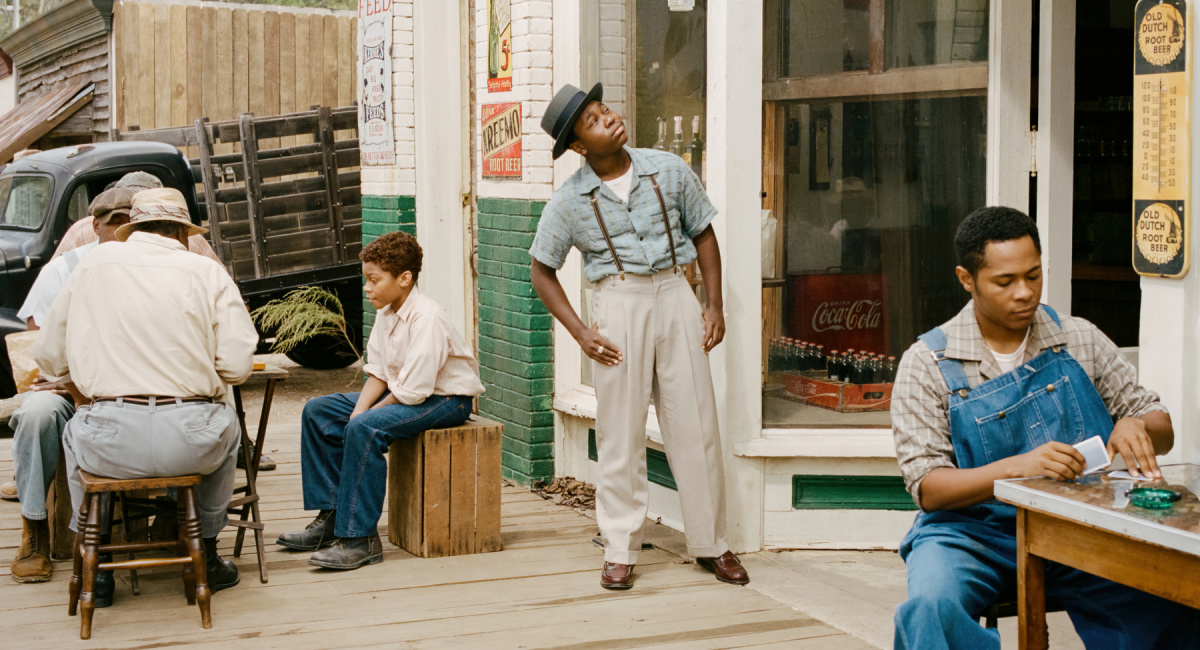
Jalyn Hall as Emmett Till in TILL, directed by Chinonye Chukwu, released by Orion Pictures. Credit: Andre Wagner / Orion Pictures. © 2022 ORION PICTURES RELEASING LLC. All Rights Reserved.
That evening, the group heads to a local store to enjoy cokes and conversation. Emmett heads in to buy candy. Working the counter is the nervy Carolyn Bryant (Haley Bennett), who is none too thrilled when Emmett compliments her by telling her she looks like a movie star. It’s an innocent encounter for him but compounded when he later wolf-whistles at her.
Carolyn goes for a gun and the customers scramble, but while Emmett is convinced that the incident has blown over with no repercussions, tragedy strikes when a group of white men, including Bryant’s husband, Roy (Sean Michael Weber), and his half-brother J.W. Milam (Eric Whitten) abduct him from his uncle’s house at gun point.
Emmett is tortured and lynched (the film chooses to have this happen mostly offscreen), and his bloated, scarred and ruined body shows up in a river days later.
A heartbroken Mamie insists on having her son’s body sent back to Chicago, displayed in an open casket without his injuries being repaired, and allowing pictures to be sent out. Her hope is to spur the arm of justice and to bring such racist attacks to a wider audience.
Teaming up with the NAACP and Civil Rights crusaders such as Medgar Evers (played by Tosin Cole), Mamie travels to Mississippi to speak at Bryant and Milam’s trial, hoping against hope that a jury composed entirely of old White men will actually deliver a guilty verdict.
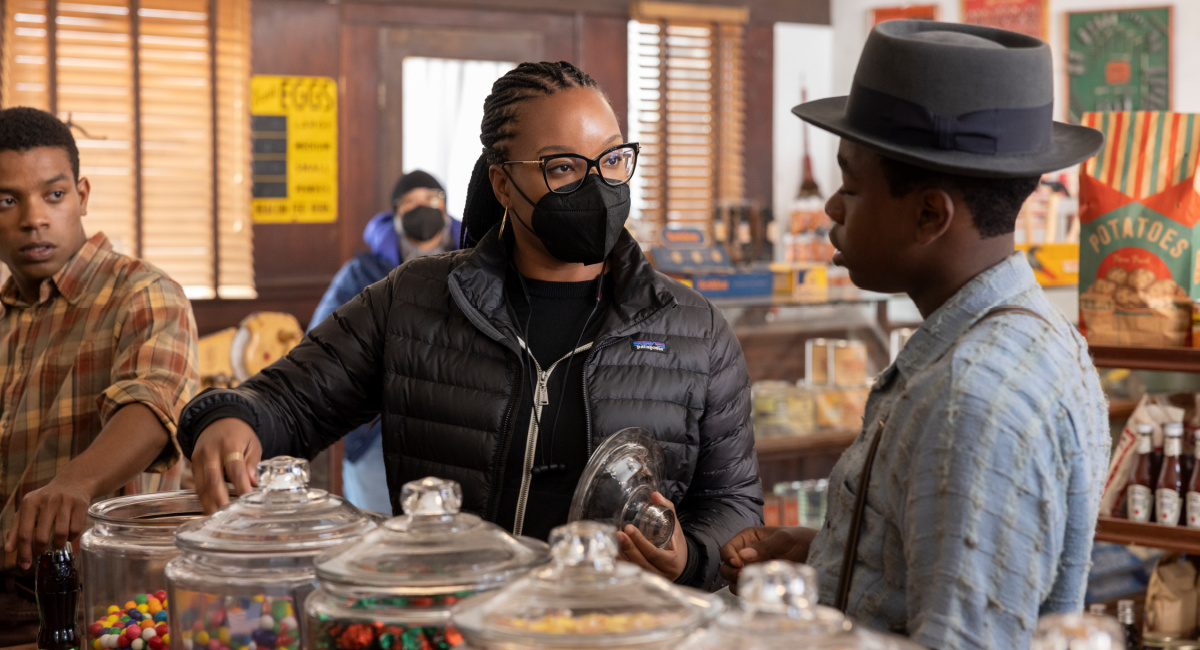
(L to R) Director Chinonye Chukwu and actor Jalyn Hill on the set of TILL, released by Orion Pictures. Credit: Lynsey Weatherspoon / Orion Pictures. © 2022 ORION PICTURES RELEASING LLC. All Rights Reserved.
As history records, it doesn’t work out that way – even later, when the men confessed to the crime in a magazine interview and still remained free – but the stage was set for the eventual passing of the Civil Rights Act in 1957 and, with a typically slow crawl on such matters, the introduction of the Emmett Till Antilynching Act, which made lynching a Federal hate crime, this year.
It is the sort of story that demands faithfulness and care, and director Chinonye Chukwu certainly delivers on that front, eschewing showy style and (usually) unnecessary dramatics to bring it to life.
Working with co-writers Michael Reilly and Keith Beauchamp, she largely allows the importance of the message to shine through, but the real ace up her sleeve is her leading actor.
Deadwyler is a revelation here: she has been working for years and impressed recently in Western ‘The Harder They Fall’. But in ‘Till’, she’s on another level, by turns crusading and crushed, human and heroic.
She’s so magnetic, the movie sometimes suffers when she’s not on screen. Mamie is truly put through the wringer in this narrative, and Deadwyler has the skill to make every moment work. She is endlessly watchable whether she’s interacting with her son or keening over his battered body.
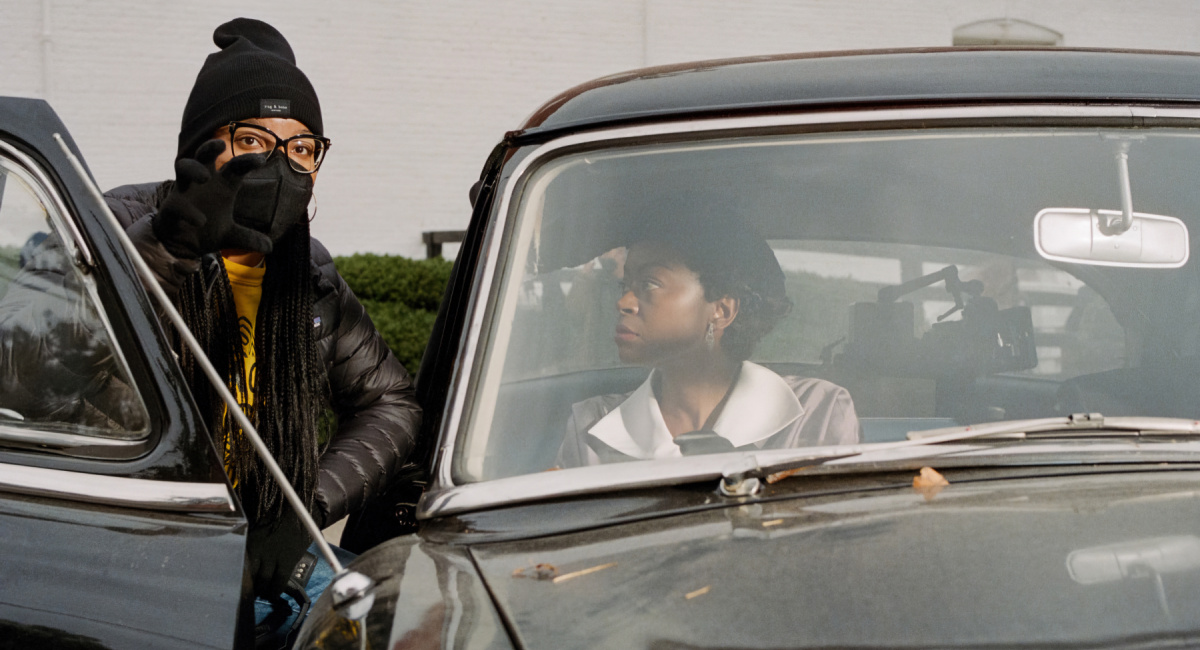
(L to R) Director Chinonye Chukwu and actor Danielle Deadwyler on the set of TILL, released by Orion Pictures. Credit: Andre Wagner / Orion Pictures. © 2022 ORION PICTURES RELEASING LLC. All Rights Reserved.
We’ll be surprised if her name doesn’t crop up in awards talk as a real Best Actress contender, such is the impressive level of work on display here. Directors will hopefully be beating down her door to cast her after this.
Which is not to say the rest of the ensemble is in any way lacking. As mentioned, Hall infuses Emmett with such joyous life that his slaying is all the more tragic. Whoopi Goldberg, in a smaller role as Mamie’s own mother (she also co-produced the movie), is quietly powerful when called upon, though her character somewhat fades into the background when Mamie heads to Mississippi.
On the troublesome side, the movie does tend to dip into indulgence at times, scenes and certain shots left to linger long past when they should have cut away. Other editing choices are confusing, scenes cutting away abruptly when they needed room to breathe.
One or two of the performances also verge on cliched and overwrought. The issues with the movie don’t dilute the power of the message, though, and if you only know the tale Emmett Till as a vague, troubling moment in history, this is a way to educate yourself.
If films such as this can sometimes feel like you’re being told to eat your vegetables, the story itself is worth digging into, as relevant today as it ever was. Which might be one of the saddest truths of all.
‘Till’ receives 3.5 out of 5 stars.
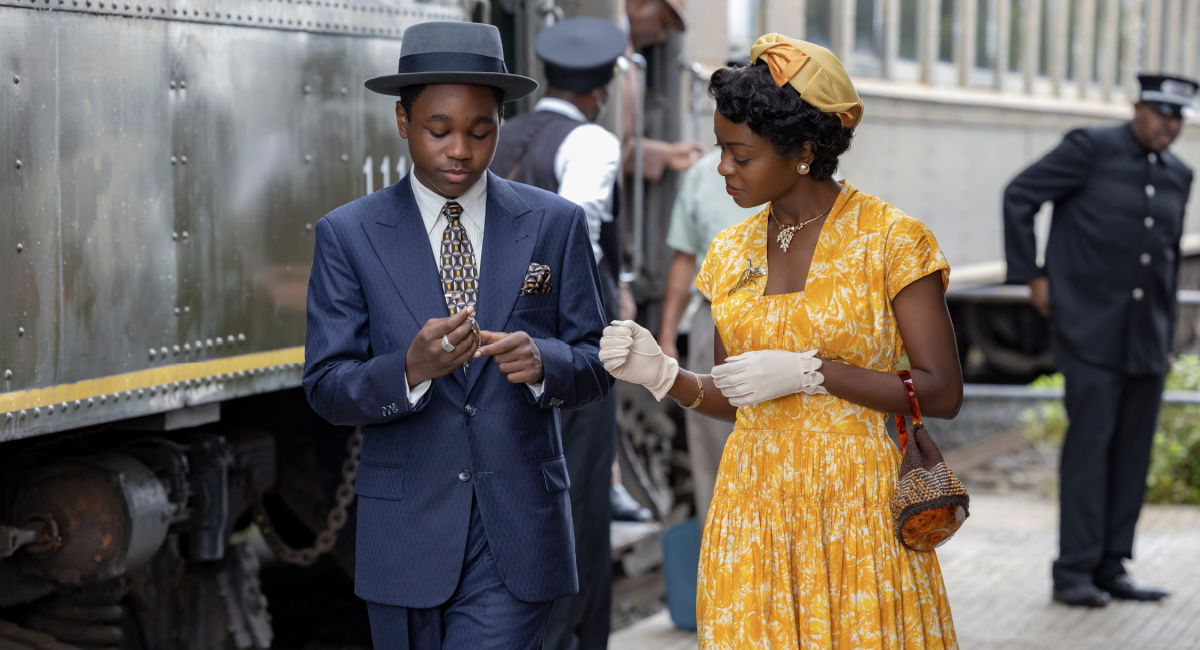
(L to R) Jalyn Hall as Emmett Till and Danielle Deadwyler as Mamie Till Bradley in TILL, directed by Chinonye Chukwu, released by Orion Pictures. Credit: Lynsey Weatherspoon / Orion Pictures. © 2022 ORION PICTURES RELEASING LLC. All Rights Reserved.
